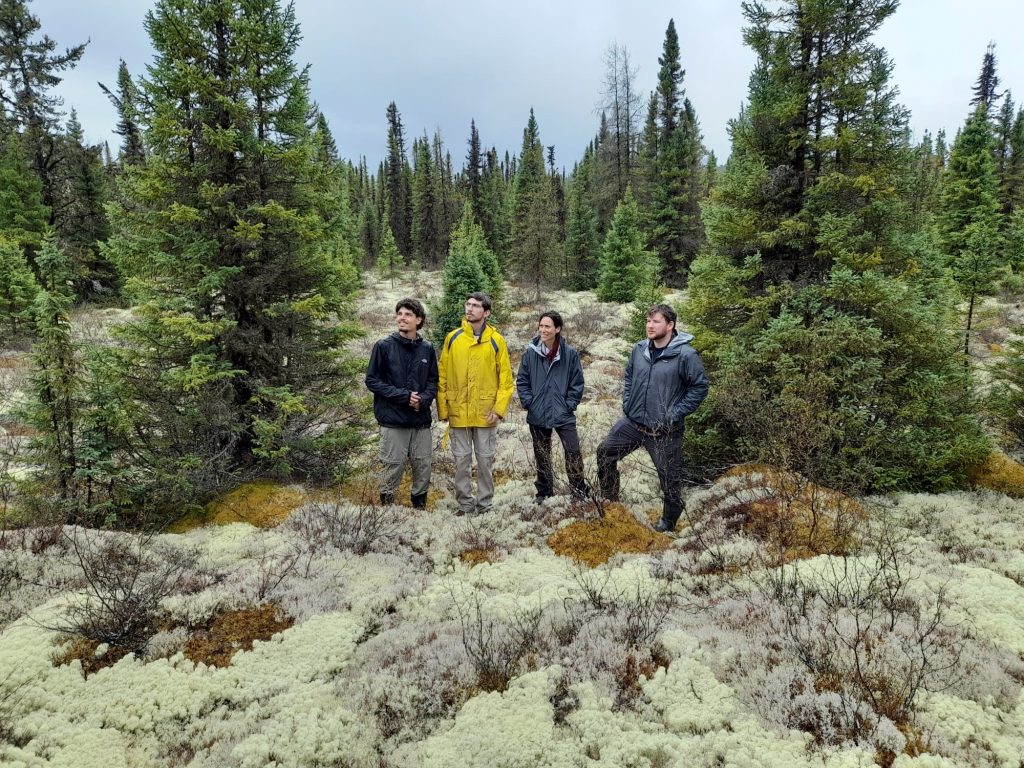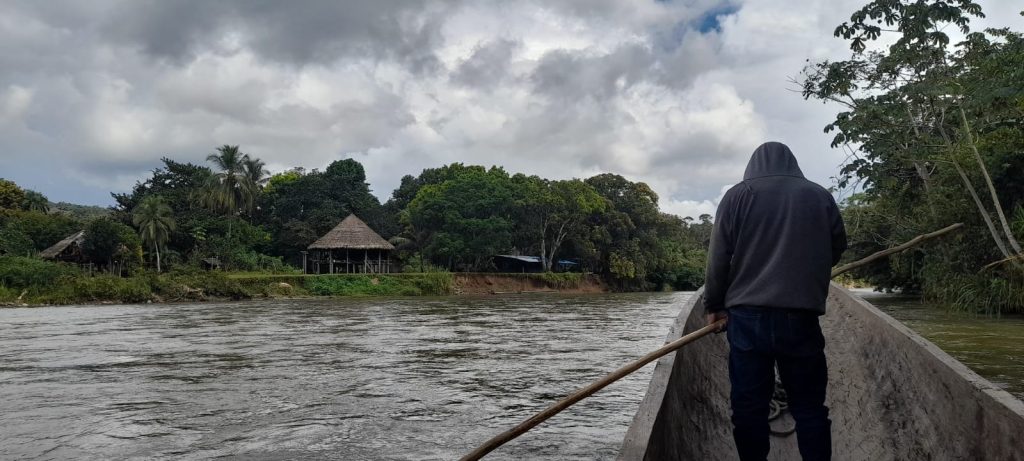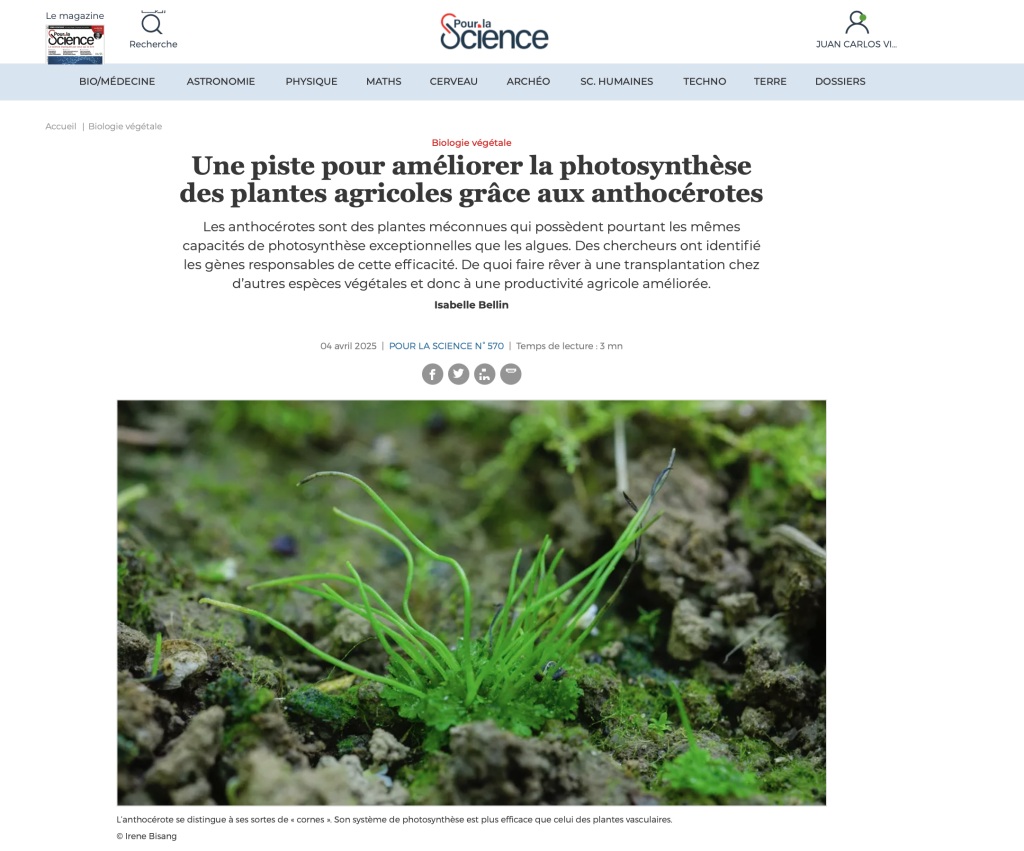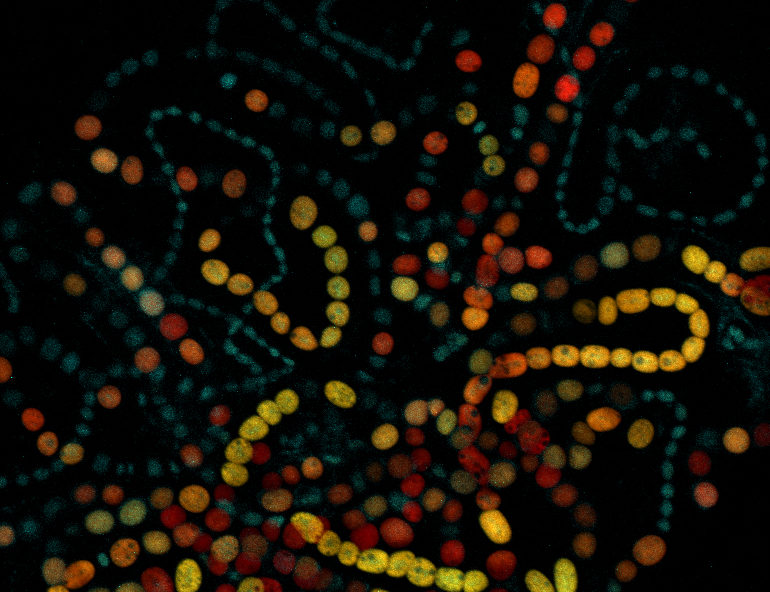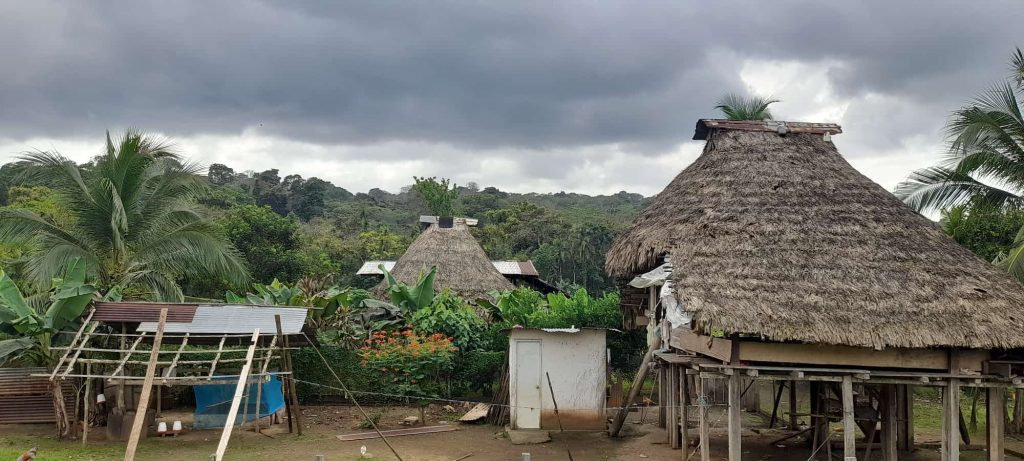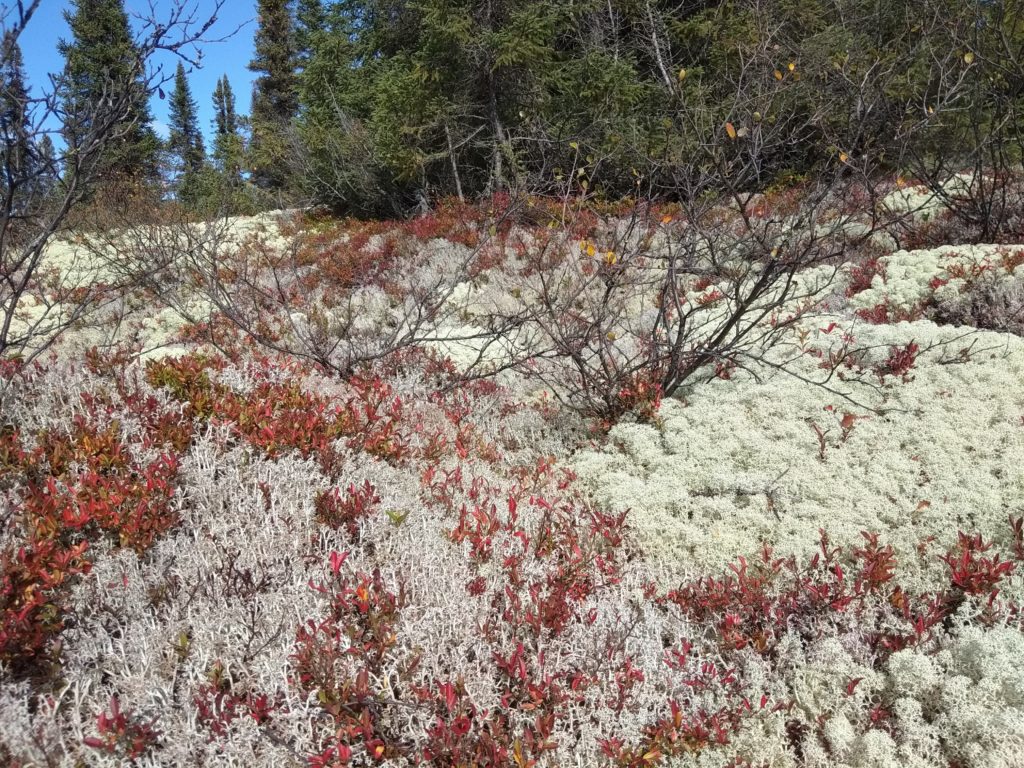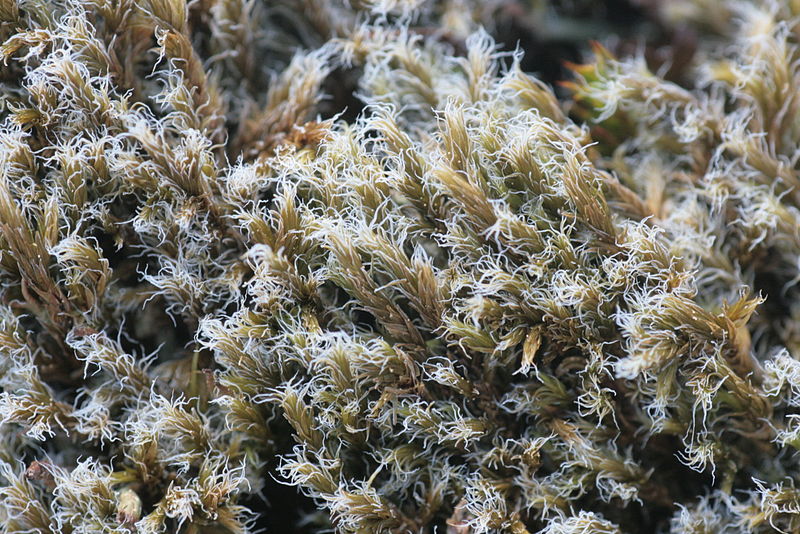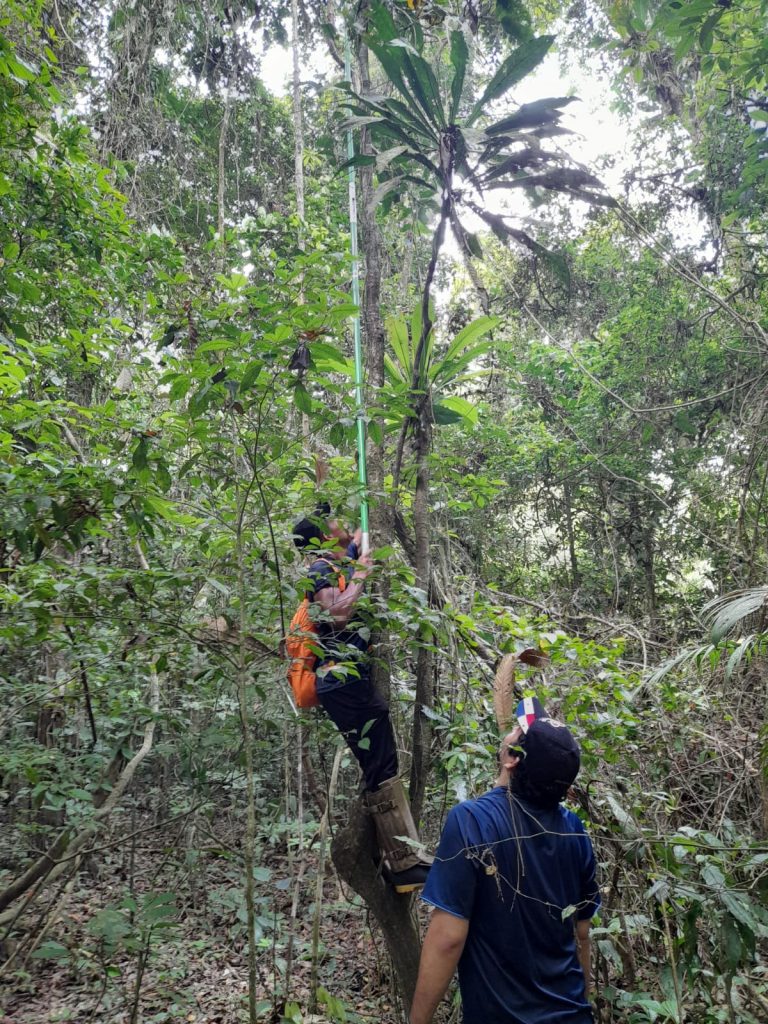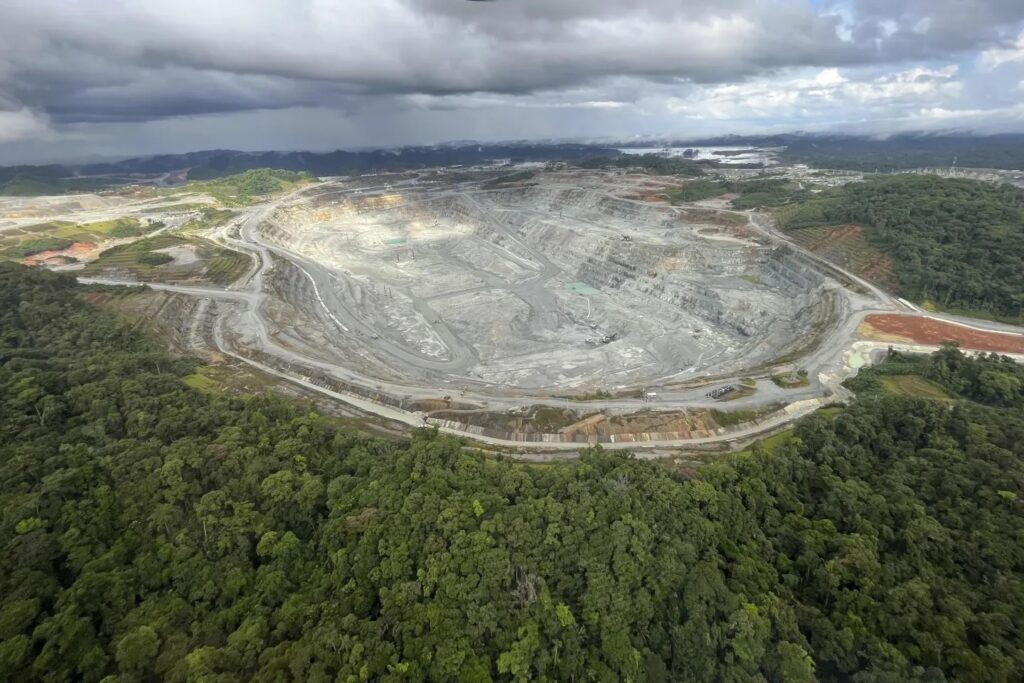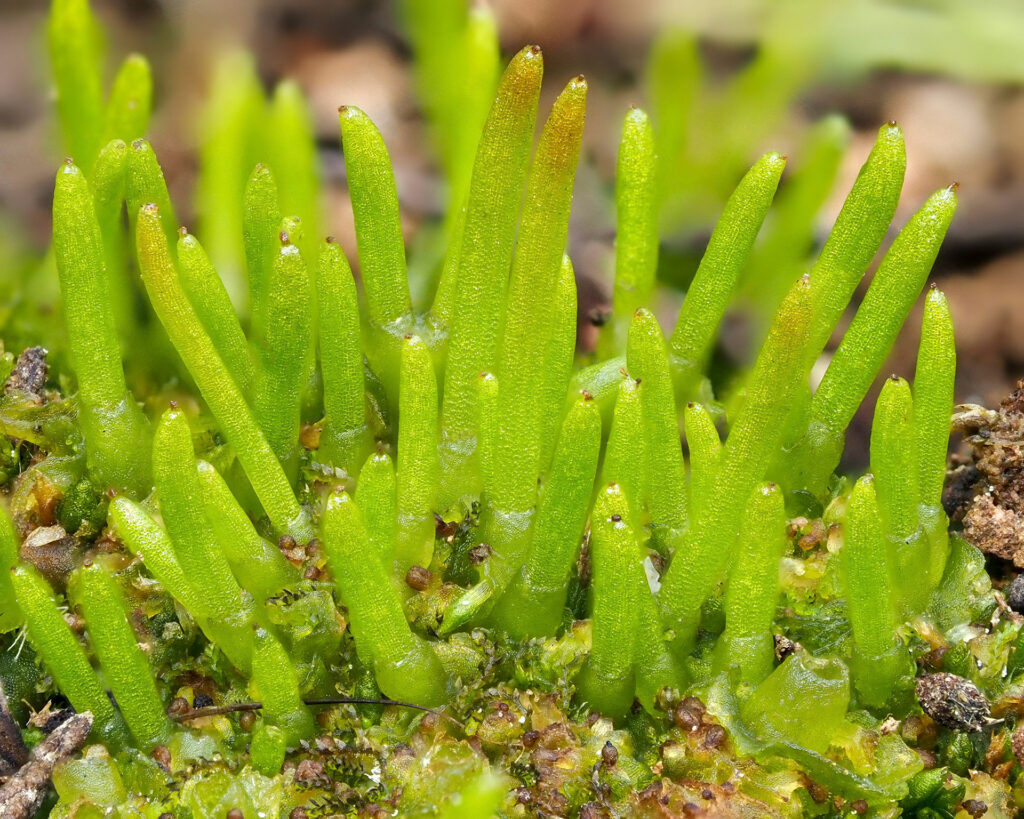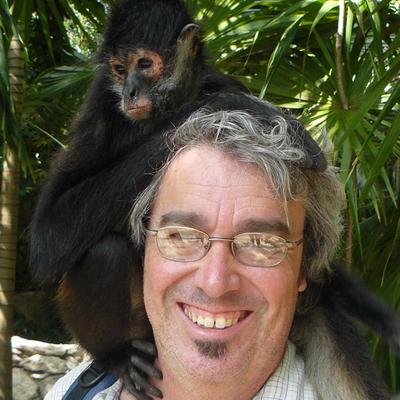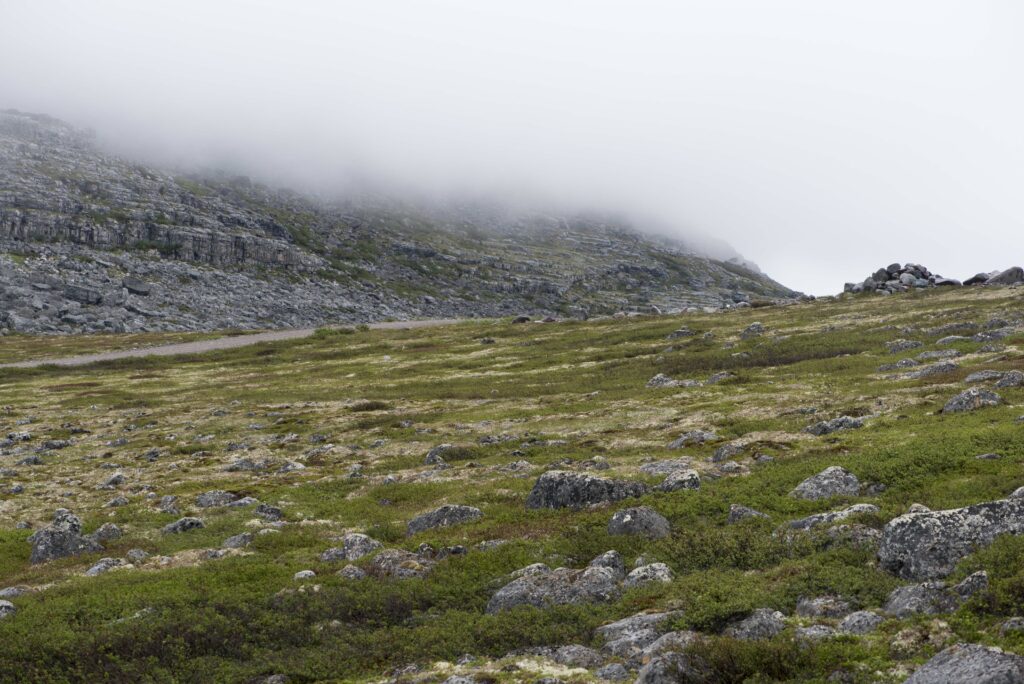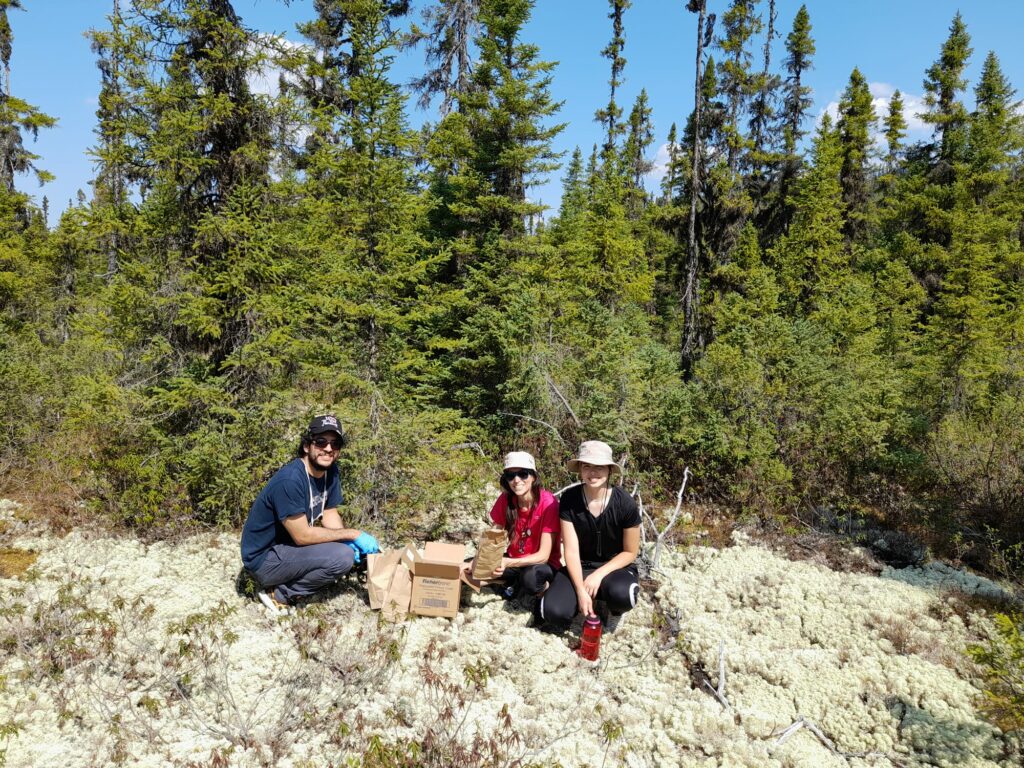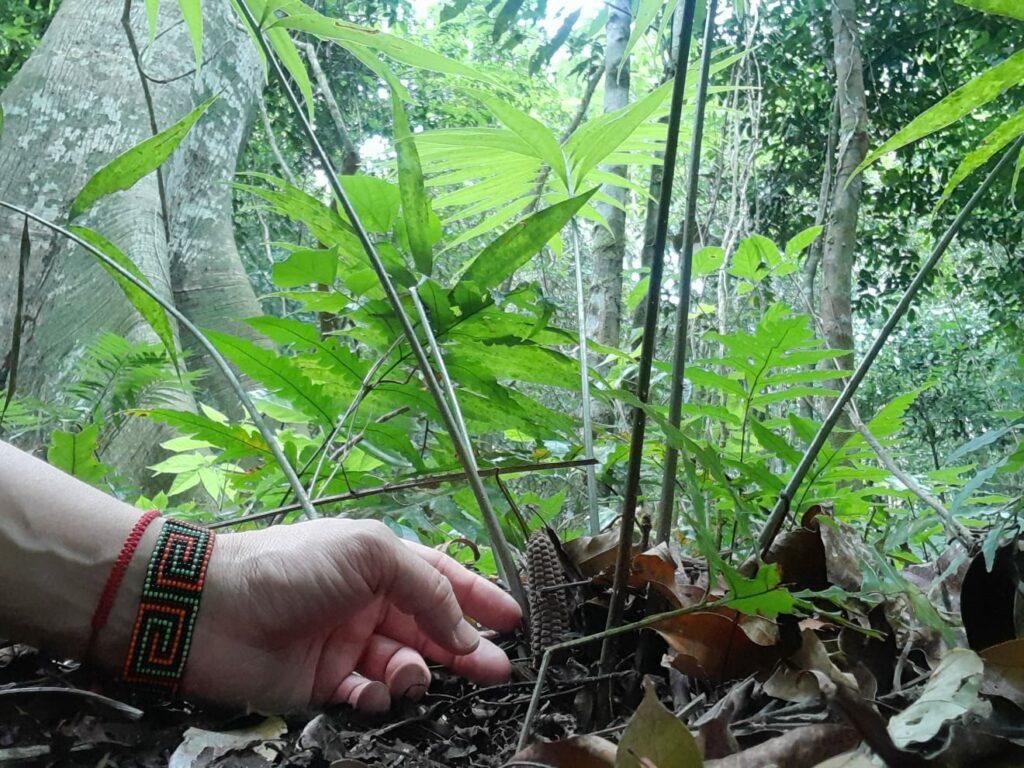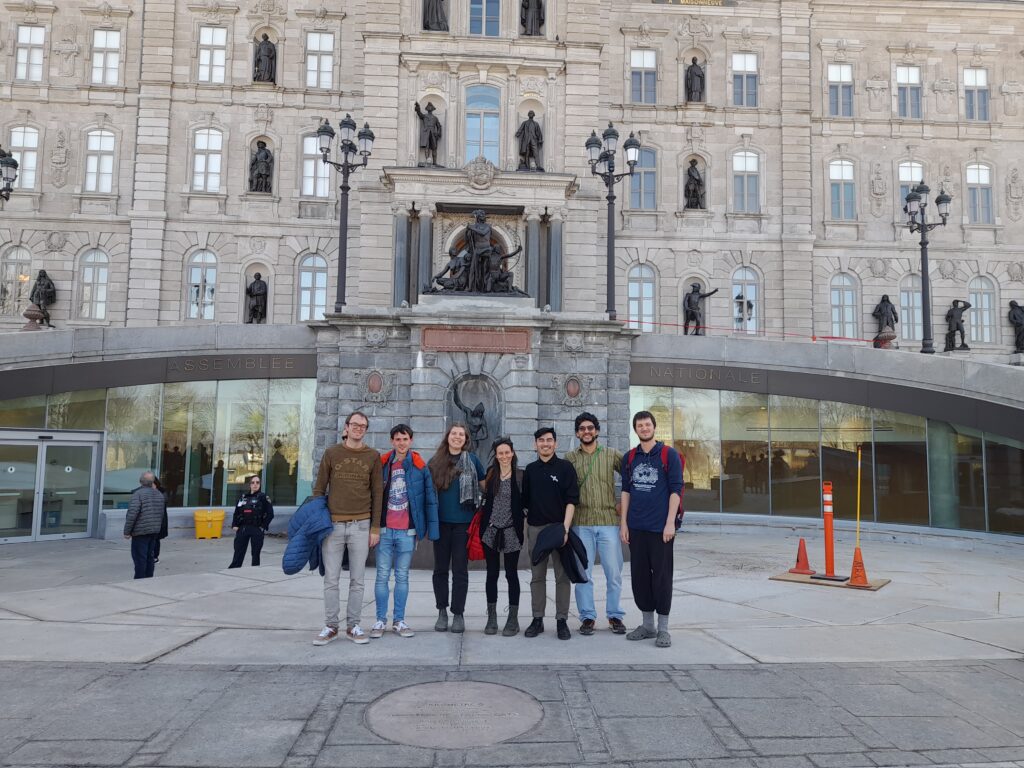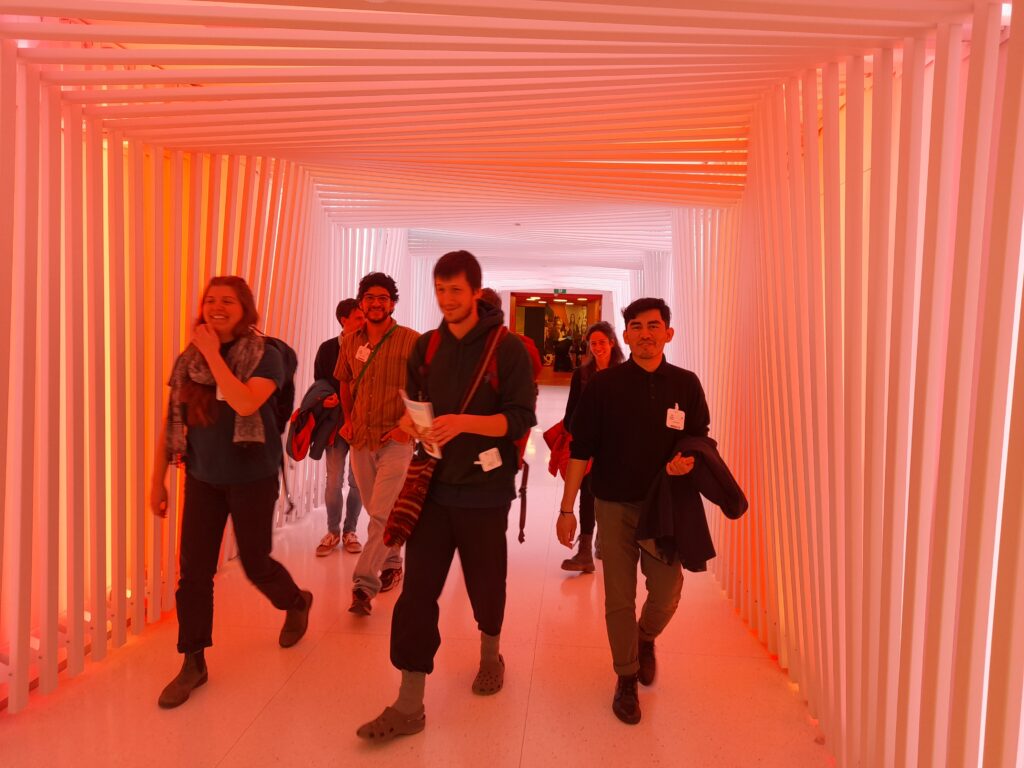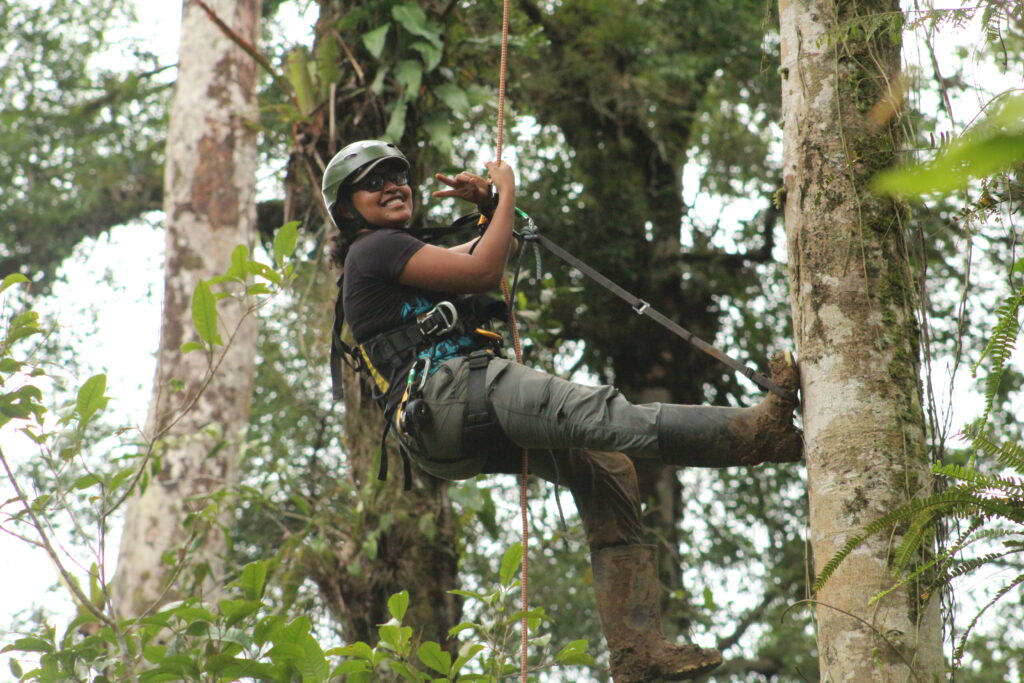Gènes de résistance aux antibiotiques sur des lichens boréaux
La présence de certains de ces gènes pourrait résulter du transport atmosphérique de bactéries résistantes à des antibiotiques utilisés en médecine et en agriculture par Jean Hamman. Un petit article de vulgarisation sur l’étude de Alonso García et al. 2025. L’importance des microorganismes résistants aux antibiotiques a récemment été soulignée. https://nouvelles.ulaval.ca/2025/10/17/des-genes-de-resistance-aux-antibiotiques-sur-des-lichens-boreaux-du-quebec-6f8e2524-7f13-497f-b9fb-7519235d776b Photos: Philip Bell-Doyon […]
Our lab is transitioning into a new phase
I had an exciting year of study and research (AER in French or sabbatical). I spent time in Lille with Christelle Fraïsse learning about population genomics and then, some time in Toulouse working with Pierre-Marc Delaux on the genomic interactions between hornworts/cyanobacteria/mycorrhizal fungi. Yes, we are back to hornworts! I also travelled to Leiden to […]
Une piste pour améliorer la photosynthèse des plantes agricoles grâce aux anthocérotes
Un petit article sur l’importance des anthocérotes dans le magasin pour la science par Isabelle Bellin. Voilà profitez ! https://www.pourlascience.fr/sd/biologie-vegetale/une-piste-pour-ameliorer-la-photosynthese-des-plantes-agricoles-grace-aux-anthocerotes-27463.php et le pdf Pourlascience
New review on cycad chemical ecology and symbioses
We began a fruitful collaboration with cycad experts that got together in the Madrid Botanical Congress (2024). Soon after we submitted a review on the chemical ecology of cycad symbiosis. We provide a new perspective on different aspects of cycad symbioses and the way forward. In our lab we work on the coralloid root /bacterial […]
Second field season in Bacurú Drõa
In February, I spent my second field season in the Tierras Collectives Emberá, where we have our permanent plot: Bacurú Drõa. The project started in 2021 by the internationally recognized climate scientist Catherine Potvin, now emeritus professor at McGill university. I joined the scientific leadership of the project in 2023 with the tropical biologist Dr. Daisy […]
Hornworts in the news!
Back in Panamá, I started working on hornworts during my bachelor’s degree and, frankly, there were just 5-6 people interested in the world. In 2003, I had the opportunity to do my master’s with the hornwort expert, Karen Renzaglia at Southern Illinois University. During my doctoral degree at UCONN, with Bernard Goffinet, I explored phylogenetics […]
Du Québec à l’Espagne : un nouveau chapitre s’ouvre
« Après six ans et demi au laboratoire de Juan Carlos Villarreal, à l’Institut de biologie intégrative et des systèmes (IBIS), il est temps pour moi de tourner une nouvelle page. Je commence un poste de professeure au département de biologie végétale de l’Universidad de Murcia, en Espagne, un retour aux sources pour moi. Je […]
Philip Bell-Doyon presents his doctoral seminar on intact boreal forests- 9 October
Cette semaine, Philip Bell-Doyon, un étudiant doctoral de notre labo present son séminaire de doctorat intitulé : “Diversité biologique et chimique associée aux écosystèmes forestiers boréaux intacts”. La recherche de Philip porte sur la caractérisation de la diversité biologique et chimique associée aux écosystèmes forestiers boréaux intacts. Philip étudie en detail les communautés de lichens, […]
News from the lab !
Dennis Escolástico-Ortiz successfully defended his doctoral thesis on the population genomics, genotype/microbiome interaction and functional diversity of the bacteria associated with the moss Racomitrium lanuginosum. Dennis started a postdoc at Natural Resources Canada. We hope the best for Dennis ! Our lab has three new members. For the summer, we have the visit of Ève […]
Fieldwork in a hyperdiverse Neotropical rainforest
The Chocó-Darién region is one of the 25 global biodiversity hotspots. Our lab was invited to do fieldwork in a remote area in Río Balsas, Darién. The project, spearheaded by Dr. Catherine Potvin (Mcgill University), aims at documenting this important biodiversity hotspot while sharing and exchanging knowledge with local Emberá communities. Dr. Potvin’s team has […]
Panama dice no a la minería- triunfo para los ambientalistas
El año 2023 fue un año transcendental para los panameños. Con gran preocupación por la falta de un plan detallado a largo plazo por parte de las autoridades locales, nosotros escribimos una nota al editor de la revista Nature. Nuestra nota hace eco sobre la nota escrita por el colega Iván Landires (y colaboradores) en […]
The most comprehensive bryophyte phylogeny to date
Hot off the press ! We have just published the most comprehensive phylogenomic study of bryophytes. An effort born out the collaboration between the leaders of the goflag project and several North American, Latin American, European and Australian institutions. The goflag project is spearheaded by Gordon Burleigh, Stuart McDaniel, Christine Davis (U. of Florida), and Emily […]
Loss of a giant
We lost the director of our Institute, Louis Bernatchez. Since my arrival to the IBIS in 2016, Louis showed extraordinary support. He was also the best example of leadership I have seen so far. His intellectual contribution to science is astronomical and his passion and support for his students and staff are legendary. We are […]
The diazotrophic bacteria have an impact on the nitrogen budget in the Canadian tundra.
Exciting news about our research regarding moss-symbiosis. Moss-bacterial communities have a core microbiome and bacteria recruited from environmental sources, and symbiotic N2-fixing bacteria contribute to the N budget in northern ecosystems through biological nitrogen fixation. This process may be affected by the abundance of diazotrophs and moss nutrient content. As part of his thesis research, […]
Lichens du Québec
Nous avons des nouvelles de notre équipe de travail. Marta et Annie St-Louis ont fait un jour de vulgarisation sur les lichens à la Maison Léon Provancher. En plus, Philip vient de publier (voir pdf) des lichens del’Archipel-de-Mingan. Philip a fait un entrevue sur la diversité et l’importance des lichens de la Côte-Nord. Bravo !! ———— […]
Fieldwork and news from the lab
This month we did fieldwork in the Parc des Grands Jardins and collected reindeer lichens (Cladonia stellaris) for whole genome sequencing. We got also great news, Lilisbeth del Carmen Rodríguez-Castro obtained a prestigious ELAP fellowship to visit the lab from August 2023-February 2024. Lilisbeth will be working on the metagenomic assembly of bacterial epiphytes associated […]
Lab photo 2023
From left to right: Dennis, Alyson, JC, Marta, Philip, Chinedou, Laura, Adriel.
Guillaume’s visit and a trip to l’Assemblée Nationale du Québec
This week we have an invited speaker, Guillaume Chomicki. Guillaume has done some fantastic work on mutualism and plant-ant interactions. After his conference, we did a lab “field-trip” to the Québec National Parliament, a beautiful building with much history. We also enjoyed a sunny and warm spring day after a long gruelling winter.
Fieldwork in Panama
During our “lecture week” or a winter break, we have a time off from the strike. In that week, we headed to Panama to do some fieldwork. One of the young undergraduates in our lab, Mia Roy, went to assist Lilisbeth in her fieldwork. Lilisbeth is doing fantastic work on the phyllosphere microbiota of the […]
Lilisbeth was awarded a STRI short-term fellowship to study Zamia pseudoparasitica
We just got the news that Lilisbeth Rodríguez-Castro, was awarded a STRI short-term fellowship . These are highly competitive and prestigious fellowships to foster research on tropical settings, especially Panama. Lilisbeth will continue her fascinating work on the only epiphytic gymnosperm, Zamia pseudoparasitica. Her work is part of her master’s thesis in the Program of Environmental Microbiology […]
